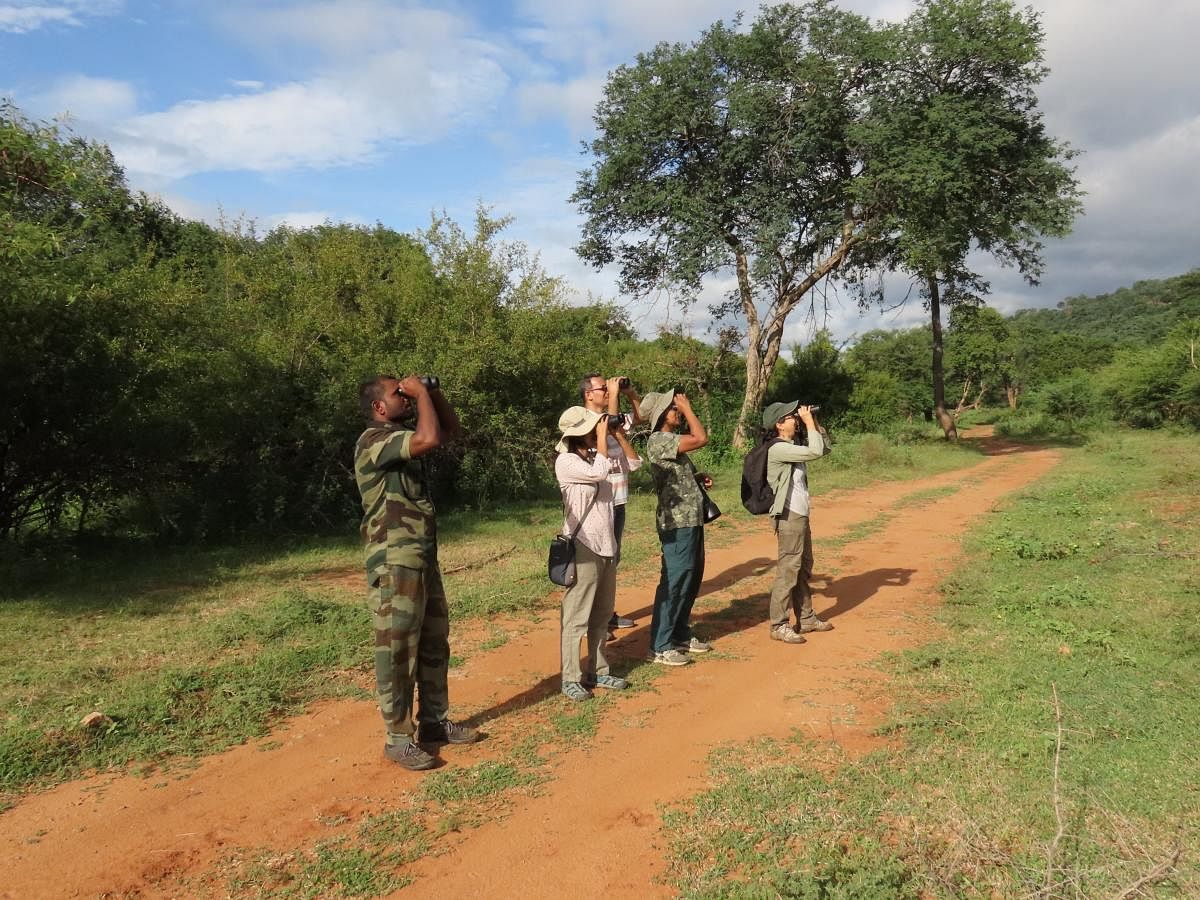
Science is for everyone, no matter how little one knows about it. Anyone with some sense of wonder and curiosity can be a citizen scientist. Citizen science is unlocking the process of creating knowledge beyond the borders of academia and research.
Public participation in scientific enquiry through citizen science programmes is gaining momentum worldwide. Scientists acquire data over a massive geographic scale and over a long time which otherwise would be either too expensive or not accessible at all, and citizens get first-hand experience in a scientific exercise and acquire knowledge. It's a win-win for both.
"Citizen science is driven by passion. It gives people the chance to nurture their scientific curiosity, which is otherwise not possible in their day-to-day professional or personal lives,” says Aniket Sule, Associate Professor at the Homi Bhabha Centre for Science Education, Tata Institute of Fundamental Research. He says it is an effective way to encourage public engagement in science and bridge the gap between the public and science.
Expanding in diverse fields
The importance of more eyes, ears, and perspectives in the diverse fields of science has long been recognised. Citizen-driven projects cover a wide variety of topics, from microbiology to astronomy. "Citizen science programs work better in certain cases, for example in documenting biodiversity, where people can contribute by clicking a photograph," says Geetha Ramaswami, a scientist at SeasonWatch, a citizen science programme that documents changes in the flowering and fruiting cycles of trees in the wake of climate change.
This could be a reason for more than 20 biodiversity-related science projects being active in India. Nature enthusiasts and experts have uploaded over 121 million observations of plants and animals to iNaturalist, the world's most popular nature app. Bird Count India, Hornbill watch, Roadkill India and India Biodiversity Portal are a few other such programmes.
Yet, some intensive crowdsourced projects may require rigorous training. Khagol Vishwa which translates to the world of astronomy is a community-driven project that was minted in 1999. It is now a part of the Centre for Citizen Science, Pune, the only organisation in India dedicated to coordinating citizen science activities.
Mayuresh Prabhune, secretary at the Centre says, "Khagol Vishwa is an amateur astronomy project that required in-person training of a small group of school and college students with the help of experts in the field. We used to train citizens through workshops on and off the field, where they observed phenomena such as meteor showers and learned systematic data collection."
According to Mayuresh, ten of the 200 participants who contributed to Khagol Vishwa for many years before it became part of the Centre for Citizen Science are now professionals in the field of astronomy. He believes that public participation fosters a community that trusts science and is less susceptible to the fake news that floods the internet.
RAD@home or Real Astronomical Discovery sitting at home is another nationwide citizen science research platform. Ananda Hota, a scientist at the Centre for Excellence in Basic Sciences, University of Mumbai, leads RAD@home. He says, “Indian citizen science research is still in a nascent stage, particularly, in astronomy and astrophysics. The country is yet to wake up to the call of direct public participation in science.”
Citing an example of a recent discovery of a monster black hole, RAD 12, made with the help of citizen volunteers at RAD@home, he emphasises the importance of citizen science in India.
In the field of climatology as well, citizen science has the potential to establish new paradigms in cutting-edge technology solutions. “Satark”, an app which uses meteorological information to forecast landslides in the Western Ghats has been developed by community scientists with help of expert researchers.
Beach Profile Monitoring Program in Tamil Nadu is another interesting initiative where people engage by mapping changes in the profile of a beach over time.
Growing concerns
With better access to the internet and the availability of smartphones, citizen-driven projects are growing in number and becoming more ambitious. The expanding network of citizen volunteers is providing a wealth of data to these initiatives.
Yet, there are challenges of accessibility and inclusivity besides data quality and uniformity. Less than 50% of Indians have access to the internet. “The majority of citizen science relies on internet access on big phone or laptop screens. This restricts it to urban centres, which is a poor representation of the population. We must devise strategies to expand outside these centres,” says Aniket.
Bird Count India has acknowledged this challenge. The team has translated Merlin, a bird identification app by Cornell Lab of Ornithology, into Marathi and Malayalam. “We collaborate with numerous non-English speaking groups, including indigenous communities. It is critical for popularising birding among them so that they can use the app more effectively with easy access to information," says Mittal Gala, Program Manager, Bird Count India.
There is also a debate about fewer opportunities for citizens to be involved in the scientific process from setting research questions to analyses and discussion of results.
The future
Citizen science is emerging as an important tool for both informal and formal science education. Artificial intelligence with capabilities of using unstructured data such as images and audio, powered by citizen knowledge has enormous potential in this digital era.
Ananda says, “the government should declare that citizen science research can be funded through corporate social responsibility. Every science instrument, a telescope or a microscope, where the data is available in digital form, should be made publicly available to citizens or students, at least Indian, in a science-ready format for both educational as well as research projects."
Geetha says that funding opportunities have increased for citizen science initiatives in India over the last decade.
Pankaj Sekhsaria, Associate Professor at the Centre for Technology Alternatives for Rural Areas says, there is a discussion on formulating government policies that mandate citizen science projects.